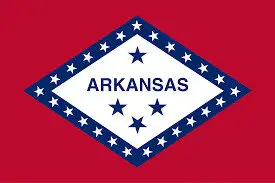Washington Wills vs. Trusts
Washington offers residents a distinct legal framework for estate planning with notable advantages and considerations. The Evergreen State provides simplified probate for estates under $100,000, recognizes transfer-on-death real estate deeds, and allows for limited oral wills in specific circumstances. As one of the nation’s few community property states with a state-level estate tax on estates over $2,193,000, Washington residents need carefully crafted plans that account for these unique provisions. With streamlined options for non-probate transfers and special protections for after-born children and new spouses, Washington residents have multiple tools to efficiently transfer assets while protecting their family’s financial future.
Table of Contents
US Map For The Different Will and Trust Requirements by State
Interested in other state’s law regarding wills and trusts? Click the ABOVE state you want to be taken to.
Washington Will Requirements
A Washington Last Will and Testament should include:
- Age and Capacity: Testator must be “of sound mind” and at least 18 years old
- Format: Must be in writing
- Signature: Must be signed by the testator or by someone who signs at the testator’s direction while in the testator’s presence
- Witnesses: Must be attested by two witnesses, who witness the document by either signing the will itself or signing an affidavit attesting to the will’s authenticity
Interested Witnesses
A witness is considered an “interested witness” if he or she receives a share of property distributed by the will. A Washington will is not invalid just because it is attested by an interested witness. However, distributions to an interested witness are presumed to have been improperly procured by the witness. Unless the presumption is rebutted, a disposition to an interested witness is void, and the witness’s share in the estate is limited to what he or she would have received had there been no will.
Document Incorporation
Washington law permits wills to incorporate by reference other documents in existence when the will is executed if the document is sufficiently described to allow identification. Any inconsistency between the will and the incorporated documents is revised in favor of the will.
Memorandum of Personal Property
Washington specifically recognizes a testator’s right to incorporate by reference a document often called a memorandum of personal property, which disposes of tangible personal property. The memorandum must be:
- In the testator’s handwriting or signed by the testator
- Referenced in the will
- Identify property and beneficiaries with reasonable certainty
The written document can be created before or after execution of the will, and the testator may make handwritten revisions to the document. A memorandum of personal property cannot dispose of real estate or property primarily used for trade or business.
Self-Proved Wills
Washington wills do not require notarization, but a will can be made “self-proved” through execution of a statutorily compliant affidavit. If executed, the affidavit serves the same role in probate as the witnesses’ testimony as to the authenticity of the will.
Need help creating the right estate plan for your Washington family?
Our estate planning specialists can help you navigate Washington’s unique laws and create a personalized strategy.
THE ULTIMATE FREE DOWNLOAD
The Estate Planners Tactical Guide
Essential Legal Protection for Achievers

Amendment, Revision, and Revocation of Washington Wills
Revoking a Washington Will
A Washington will may be revoked by:
- Physical destruction of the document (such as through burning or tearing)
- Execution of a later will that expressly revokes the prior will or includes inconsistent provisions
If a will is revoked, any codicils (will amendments) attached to that will are also deemed revoked. If a codicil is revoked, any provisions in a will affected by the codicil are revived unless the testator intended otherwise.
Amending a Washington Will
A Washington will may be amended through execution of a codicil that satisfies all formalities for execution of a will. Informal written changes to an existing will are not sufficient to amend the will.
Effect of Divorce
If a testator is divorced after executing a Washington will, any provisions in favor of the former spouse are deemed to have been revoked unless the will states an intention otherwise. Provisions deemed revoked due to divorce are revived if the testator later remarries the same spouse. Any property subject to provisions revoked by divorce is treated as if the former spouse had predeceased the testator.
Effect of Marriage or Birth After Will Execution
If a will does not provide for a spouse married by the testator after execution of the will—or a child born to or adopted by a testator after execution of the will—the surviving spouse or child inherits the same share of the estate he or she would have inherited had the testator died intestate.
However, a surviving spouse or after-born child does not have a right to share in an estate if the will states—or other clear and convincing evidence suggests—that the omission was intentional.
Holographic and Oral Wills
Holographic Wills
Washington does not recognize holographic (or handwritten) wills. A handwritten will may still be valid, but it must comply with all other formalities (such as witnessing) required to create a valid will under Washington law.
Oral (Nuncupative) Wills
Washington recognizes nuncupative (oral) wills under limited circumstances. For an oral will to be valid:
- They may be made by members of the armed services or merchant marine sailors—or other individuals if the property at issue is valued less than $1,000
- Must be made at the time of their last illness
- Two competent witnesses must hear the statements and testify that the statements were offered by the testator with the intent to create an oral will
- Proof of a nuncupative will must be provided within six months of the relevant statements
- The substance of the will must be committed to writing
Oral wills may only be used for personal property or wages of servicemembers or sailors.
Washington Trust Requirements
Capacity Requirements
To create a valid trust under Washington law:
- A grantor must have adequate capacity to create the trust
- The grantor must express an intent to create the trust
For revocable living trusts, the standard for determining capacity is the same as the standard for making a will.
Trust Purposes
Washington trusts can be created for any lawful purpose that:
- Does not violate the state’s public policy
- Is possible to achieve
Trust Creation Methods
A Washington trust can be created through:
- Transfer of property by a grantor to a trustee (either during life or via a will)
- A grantor’s declaration that property is owned by the grantor as trustee
- Exercising a power of appointment in favor of a trustee
Trustee and Beneficiary Requirements
For a valid Washington trust:
- The trustee must have actual duties to perform
- A sole trustee cannot also be a trust’s sole beneficiary
- The trust must have a reasonably ascertainable beneficiary (subject to exceptions such as for charitable trusts and trusts for the care of animals)
Trustee Duties
Trustees who manage assets are governed by the “prudent investor rule” and must only manage trust assets for the benefit of the trust’s beneficiaries.
Written vs. Oral Trusts
Though most trusts are evidenced by a written instrument setting forth the trust’s terms, Washington law recognizes oral trusts. However, the creation and terms of an oral trust must be established by clear and convincing evidence.
Trust Revocation
Washington trusts are presumed to be irrevocable unless the trust instrument states that the trust is revocable.
Revocable trusts may be revoked or amended by the grantor either:
- Under the method stated in the trust instrument, or
- If no method is provided, through a written document stating the grantor’s intent to revoke or amend the trust
A grantor may also amend or revoke a trust through by execution of a will that references the trust or devises property that would have otherwise been distributed under the terms of the trust.
THE ULTIMATE FREE DOWNLOAD
The Estate Planners Tactical Guide
Essential Legal Protection for Achievers

Special Considerations
Simplified Probate
Small Estate Procedures
Washington provides a simplified probate process for small estates (defined as probate assets of $100,000 or less in value) to skip some of the normal probate procedures. The inheritor of a Washington decedent’s property may complete an affidavit stating that:
- He or she is entitled to possession of an asset
- The estate qualifies for simplified probate
- Certain claims relating to final expenses have been satisfied
When completed, the affidavit authorizes the current possessor of the asset to turn it over to the heir outside probate.
In general, Washington’s standard probate process has a reputation for being simpler and less expensive than probate in many other states.
Community Property
Marital Property Rules
Because Washington is one of the nation’s few “community property” states, a married individual’s assets often include a significant amount of marital property jointly owned by the couple. Community property includes most assets acquired by either spouse during the marriage, unless obtained via gift or inheritance.
If a decedent spouse is intestate, his or her half-interest in the couple’s community property will be inherited by the other spouse. A spouse can also dispose of his or her half-interest in community property and separate (non-community) property by will.
Non-Probate Transfers
Transfer-on-Death (TOD) Deeds
Real Estate Transfers
Washington is among the minority of states that recognize TOD designations on real estate deeds. Ownership of real property with a TOD designation automatically transfers to the named beneficiary upon the owner’s death, avoiding the need for probate.
Vehicle Titles
Washington does not recognize TOD designations on vehicle titles.
Estate Tax
State-Level Estate Tax
The State of Washington is part of the relatively small minority of states that still have a state-level estate tax. Washington estates valued over $2,193,000 qualify for the estate tax. The tax is assessed on amounts over the limit at rates progressing from 10 – 20%, depending on the total estate value.
Unlike the federal version, Washington’s estate tax does not allow for portability of estate tax exemptions between spouses. Washington does not impose an inheritance tax.
Need help creating the right estate plan for your Washington family?
Our estate planning specialists can help you navigate Washington’s unique laws and create a personalized strategy.
Wills vs. Trusts: Comparison
| Feature | Wills | Trusts |
|---|---|---|
| When It Takes Effect | After death | Can be immediate (living trust) or after death (testamentary trust) |
| Probate Process | Requires probate | Assets in trust avoid probate |
| Privacy | Public record | Generally private |
| Challenges | Can be challenged in probate court | More difficult to challenge |
| Cost to Create | Generally less expensive | Usually more expensive |
| Ongoing Administration | None until death | May require ongoing management |
| Protection During Incapacity | None (requires separate power of attorney) | Can provide management if grantor becomes incapacitated |
| Washington Special Feature | Limited oral wills; simplified probate under $100K; community property rules | TOD real estate deeds; community property agreements; oral trusts |
Conclusion
Creating a will or trust does not have to be difficult or intimidating for Washington residents. However, certain circumstances—like second marriages, stepchildren, aging parents, special needs beneficiaries, guardianships, and business interests—can add complexity and result in unforeseen consequences.
Washington offers unique estate planning tools that provide both flexibility and protection. The state’s community property laws fundamentally shape how married couples plan their estates, offering both advantages and potential complications. Community property agreements provide an effective way for spouses to arrange for non-probate transfers of assets.
While Washington is one of the few states that still imposes a state-level estate tax (on estates over $2,193,000), it also provides several advantageous estate planning mechanisms. The simplified probate process for estates under $100,000 can significantly reduce administrative complexity and expense. The state’s recognition of transfer-on-death real estate deeds also offers an important tool for non-probate transfers of significant assets.
The state’s provisions for limited oral wills, while restricted in scope, demonstrate flexibility in certain situations. Meanwhile, Washington’s presumption that trusts are irrevocable unless explicitly stated otherwise highlights the importance of careful drafting.
When any out-of-the-ordinary issues are present, it’s advisable to consult with an experienced attorney familiar with and licensed under Washington law to ensure your estate plan takes full advantage of the state’s provisions while minimizing exposure to estate taxes and potential probate complications.
Ready to Protect Your Washington Family’s Future?
Join the thousands of Washington families who have secured their legacy with our personalized estate planning strategies. Our approach helps you avoid probate, protect assets, and ensure your wishes are carried out exactly as you intend.
- ✓ Avoid costly probate and family disputes
- ✓ Maintain privacy of your financial matters
- ✓ Protect assets during incapacity
- ✓ Create safeguards for children and loved ones
Explore Estate Planning Strategies
Free consultation with our estate planning specialists
THE ULTIMATE FREE DOWNLOAD
The Estate Planners Tactical Guide
Essential Legal Protection for Achievers

FAQs: Washington Wills and Trusts
Q: What are the requirements for a valid will in Washington?
A: A Washington will must be in writing, signed by the testator (18+ and of sound mind) or at their direction in their presence, and attested by two witnesses who sign in the testator’s presence or via affidavit. A notarized affidavit can make it self-proved.
Q: Does Washington recognize holographic or oral wills?
A: Washington does not recognize holographic (handwritten) wills unless they meet standard witnessing rules. Oral (nuncupative) wills are valid for servicemembers, sailors, or estates under $1,000 if made during the last illness, heard by two witnesses, and recorded within six months.
Q: How can I avoid probate in Washington?
A: Avoid probate with living trusts, joint tenancy with right of survivorship, community property agreements, payable-on-death (POD) accounts, transfer-on-death (TOD) securities, or TOD deeds for real estate. Small estates under $100,000 can use an affidavit.
Q: What is a community property agreement in Washington?
A: A community property agreement allows spouses to convert separate assets into community property, transferring them to the surviving spouse upon death without probate, applicable only to marital assets in Washington’s community property system.
Q: Does Washington have an estate tax?
A: Yes, Washington has an estate tax on estates over $2,193,000, with rates from 10-20%. There’s no inheritance tax, and unlike federal law, exemptions aren’t portable between spouses.
Q: What is a transfer-on-death deed in Washington?
A: A transfer-on-death (TOD) deed lets you name a beneficiary to inherit real estate upon your death without probate. You retain full control during your lifetime, and Washington is among the few states recognizing this for real property.





